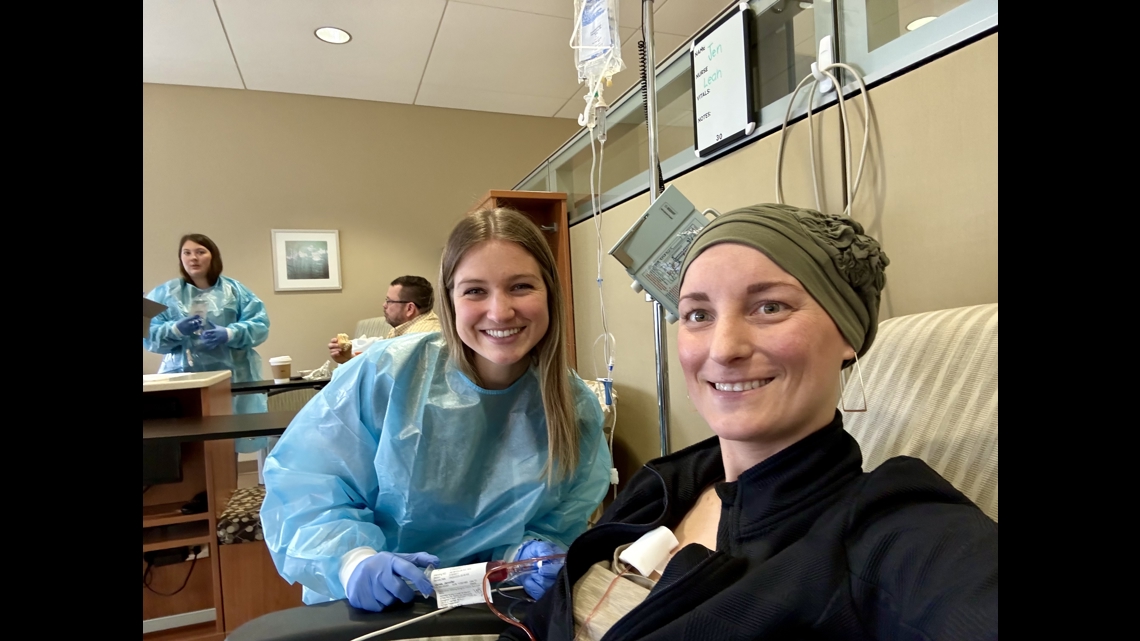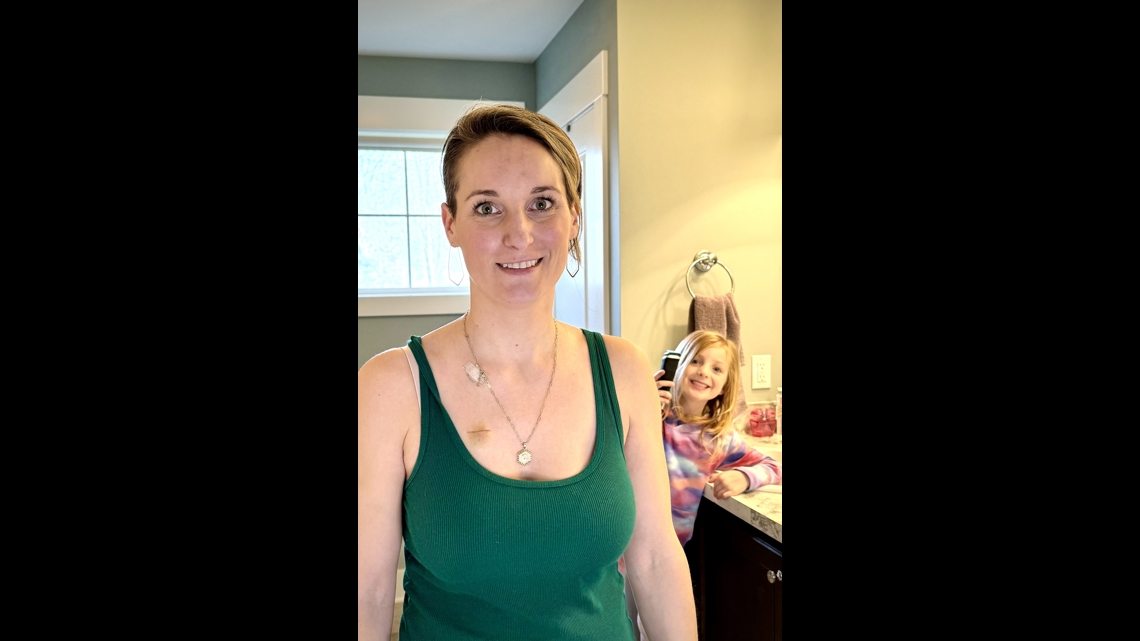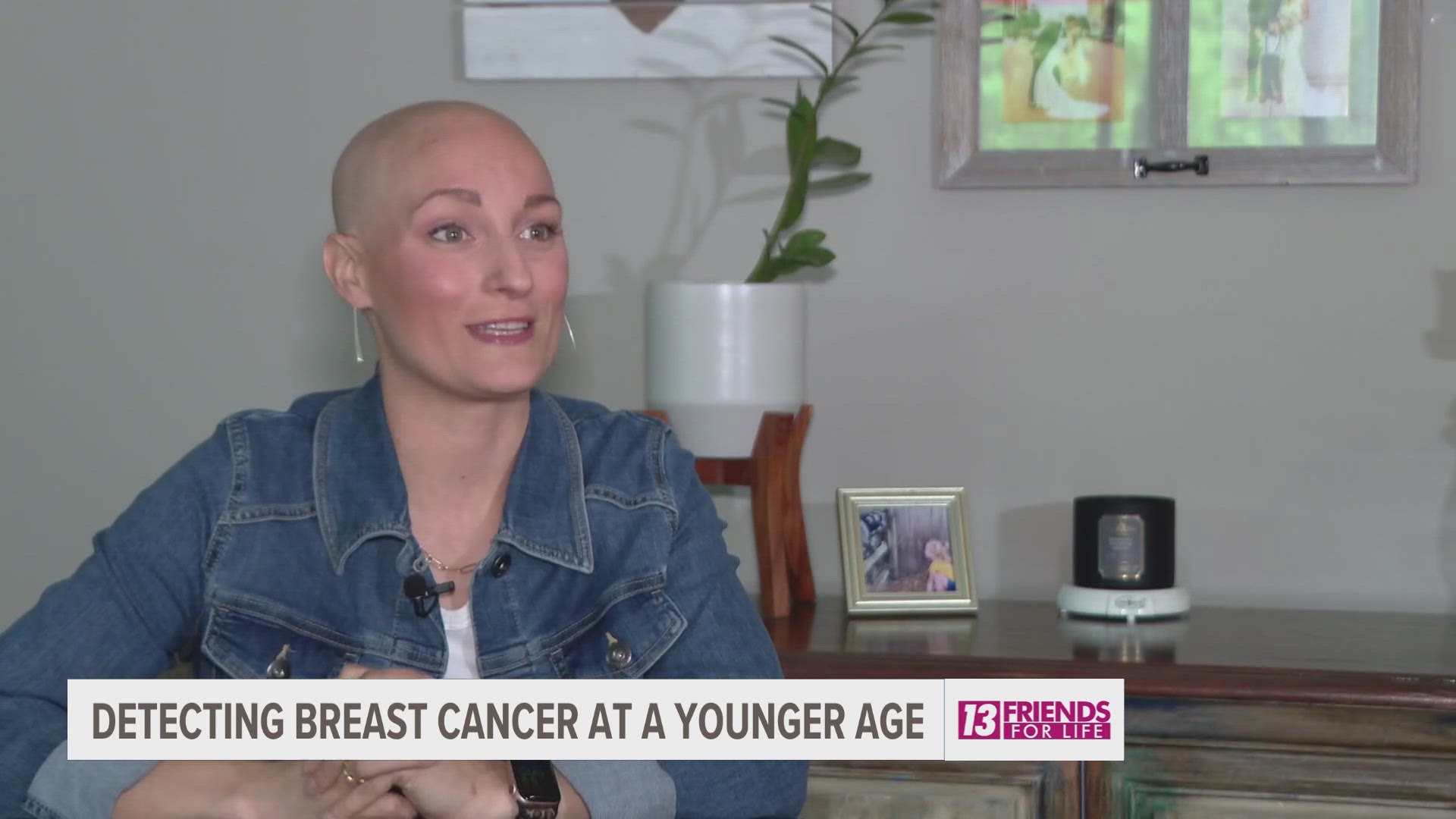ROCKFORD, Mich. — Jen VanEe says "there was no reason for me to get cancer."
She has no genetic predisposition, no family history of breast cancer and was not old enough for recommended yearly mammograms.
Yet, at 38 years old, VanEe was diagnosed with triple negative breast cancer.
"I've never had any mentality outside of this other than having a very long life," said VanEe. "And it stayed that way. I do think that that has been significantly helpful in me managing all of the symptoms."
Recommendations for screenings for breast cancer are changing. This month, the U.S. Preventive Services Task Force announced stronger recommendations women get mammograms every two years starting at age 40, previously 50.
Many health care systems also recommend mammograms younger than age 50. Jill Veeneman, a physician assistant for comprehensive breast care at Corewell Health, says the hospital system recommends yearly mammograms beginning at age 40, but younger for someone with higher risk.
"Because of the advances in screening technology, we're able to detect things long before we're able to feel them and that's where screening becomes so important," said Veeneman. "Often, if we wait until there are signs and symptoms externally, things have progressed to a much more advanced stage and then quality of life and treatment can be much more difficult. The screening imaging can often detect it long before that's the case."


For VanEe, it was her husband who she credits with finding her lump.
"He reached over and he was like, 'What was that?'" said VanEe. "And I was like, 'What do you mean, what was that?' And I felt what was visibly a lump in my breast."
A mammogram, ultrasound and other tests confirmed the diagnosis. She began a chemotherapy journey and has a scheduled mastectomy later this summer.
"I've had people asked to they're like, 'Well, where are you getting your normal mammograms?'" said VanEe. "And I was like, I hadn't qualified to be able to get them yet!"


Thankfully, after a few weeks on chemo, her lumps in her breast and lymph nodes have shrunk.
VanEe chronicles her journey through her blog, One Tough Titty. She says the blog not only helps her sort through and write out her thoughts, but helps encourage other women on similar paths.
"There's a lot of people that navigate this journey privately," said VanEe. "And I cannot imagine how difficult that would be."
She also said the blog is a living history of this time, she will be able to share with her young daughter when she is older.
"You can change how you walk this path, like you can choose how you navigate this," said VanEe.
RELATED VIDEO: West Michigan bride-to-be diagnosed with triple-negative breast cancer shares her story
►Make it easy to keep up to date with more stories like this. Download the 13 ON YOUR SIDE app now.
Have a news tip? Email news@13onyourside.com, visit our Facebook page or Twitter. Subscribe to our YouTube channel.

